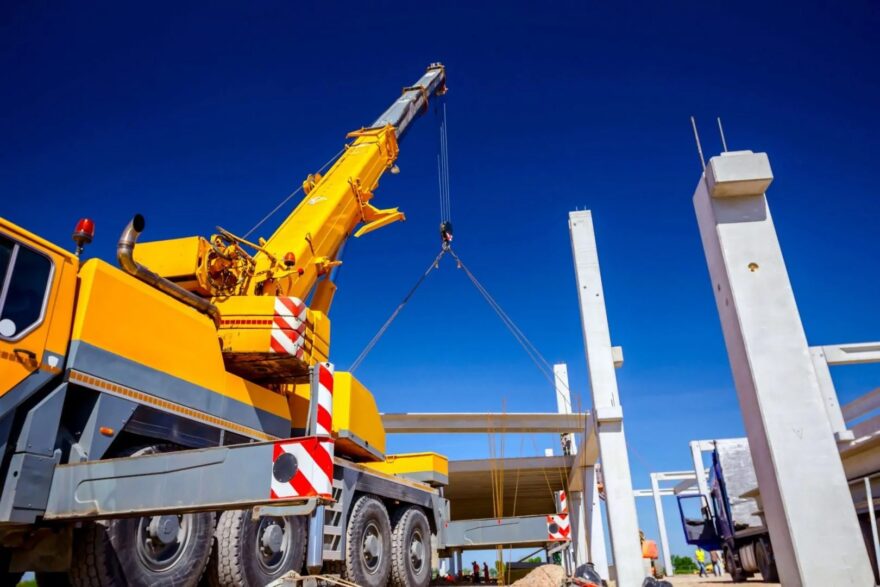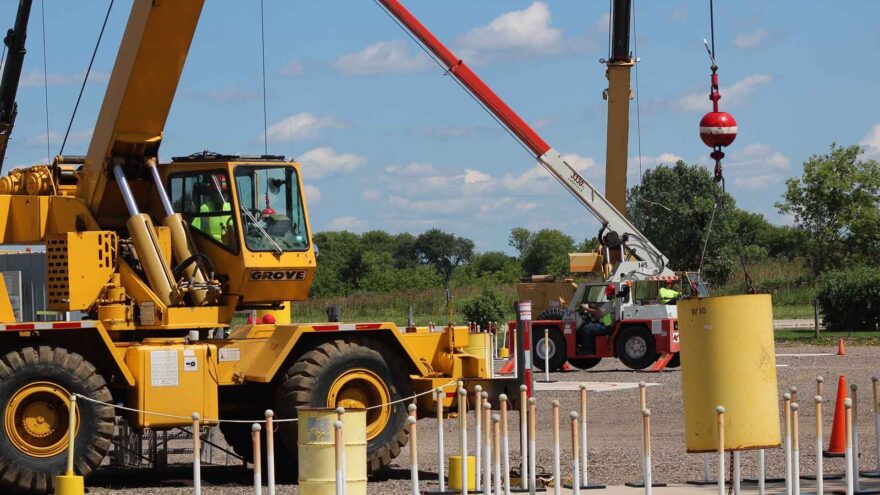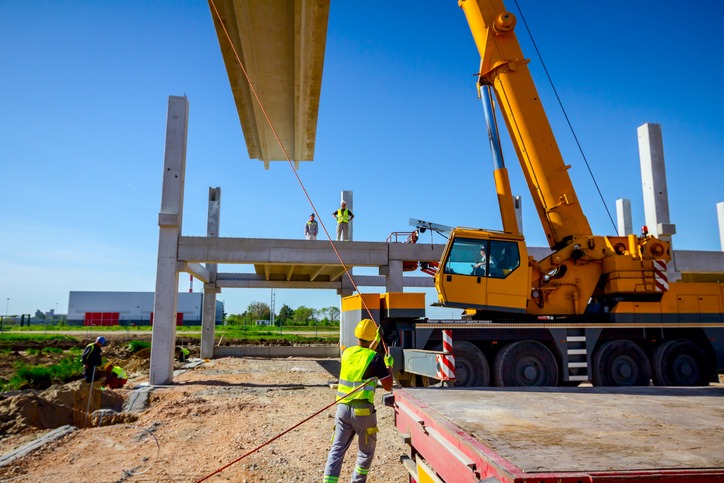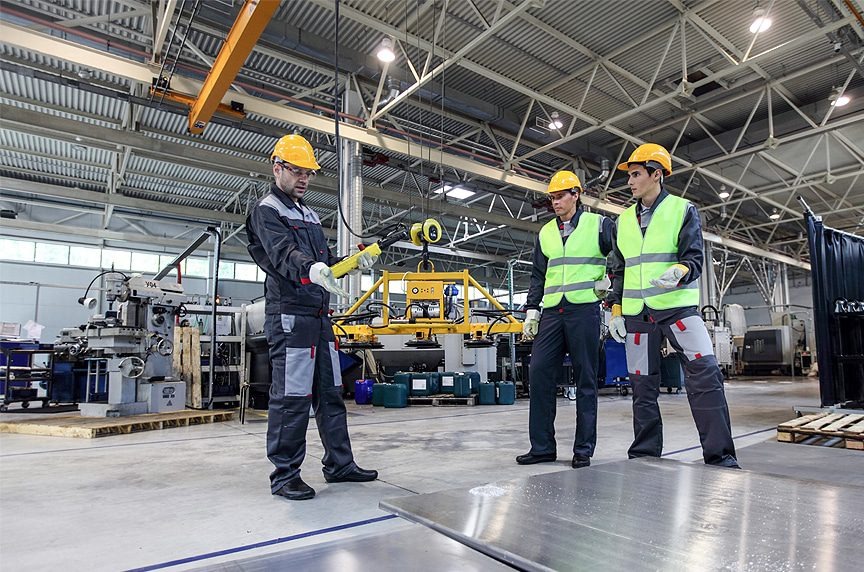Crane operation is a complex and high-risk profession that demands skill, focus, and deep technical knowledge. With cranes being used across construction, manufacturing, shipping, and logistics industries, the demand for qualified crane operators has never been higher. However, becoming a professional crane operator requires more than just hands-on experience — it starts with the right training program.
A top-quality crane operator training program ensures that operators not only understand how to control heavy machinery but also prioritize safety, efficiency, and compliance with regulatory standards. In this blog, we’ll explore the key qualities that define the best crane operator training programs, and how they help aspiring operators build a successful and safe career.
1. Accreditation and Compliance with Industry Standards

The foundation of a great crane operator training program is proper accreditation. A certified training institute must comply with national and international safety and operational standards.
For example:
In the U.S., the Occupational Safety and Health Administration (OSHA) and the National Commission for the Certification of Crane Operators (NCCCO) regulate training and certification standards.
In India, training centers must adhere to guidelines under Factories Act and ISO-certified training modules for crane safety and operation.
An accredited program ensures that the curriculum is up-to-date with safety laws, load limits, rigging standards, and inspection requirements. It also ensures that your certification will be recognized by employers across the industry.
Why it matters:
Without accreditation, your training might lack legal validity — which can limit your job opportunities and put you at risk during audits or safety checks.
2. Experienced and Certified Instructors
A training program is only as strong as its instructors. The best crane operator training programs employ experienced, certified professionals with real-world experience in operating different types of cranes — mobile, tower, overhead, and crawler cranes.
These instructors not only teach the theory but also share insights from years of on-site experience, helping students understand real challenges like:
- Handling cranes in confined spaces
- Managing uneven terrain
- Performing load calculations under pressure
Why it matters:
Skilled trainers bridge the gap between theory and practice, preparing students for real-world scenarios where quick thinking and safety awareness are critical.
3. Comprehensive Curriculum

A top-notch training program covers every aspect of crane operation — from basic mechanics to advanced safety techniques. The curriculum should include both theoretical knowledge and practical training.
A well-rounded curriculum typically includes:
Crane types and functions: Understanding different cranes and their applications.
Load charts and weight calculations: Learning how to calculate safe load capacities.
Safety standards and signaling: Understanding OSHA guidelines, hand signals, and communication.
Rigging techniques: Properly attaching loads to prevent accidents.
Equipment inspection: Conducting daily pre-operation and post-operation checks.
Emergency procedures: Knowing how to respond in case of a malfunction or accident.
Why it matters:
Crane operation involves more than just moving levers. It requires knowledge of physics, safety laws, and teamwork. A detailed curriculum ensures trainees are fully prepared for all aspects of the job.
4. Hands-On Practical Training
While theory builds understanding, hands-on training builds confidence. The best crane operator training programs provide extensive on-field practice with different crane models and real-world scenarios.
Students get to practice:
- Lifting and lowering loads
- Balancing weights
- Maneuvering cranes in tight workspaces
- Using safety devices and anti-collision systems
Modern programs even include simulator-based training, allowing operators to experience various weather conditions and complex lifts in a controlled environment.
Why it matters:
Real-world practice ensures that operators can apply their knowledge safely and effectively on job sites, minimizing errors and risks.
5. Strong Focus on Safety
Safety is the heart of every crane operation. The best programs emphasize workplace safety from day one. Trainees learn how to:
- Identify potential hazards (like overhead power lines or uneven ground)
- Follow proper rigging procedures
- Use personal protective equipment (PPE) correctly
- Apply lockout/tagout procedures during maintenance
Some institutes also conduct mock safety drills and accident response training to build readiness for emergencies.
Why it matters:
According to OSHA, improper crane operation remains one of the top causes of workplace accidents. A safety-focused training program drastically reduces these risks.
6. Small Class Sizes and Personalized Attention

Effective learning often requires one-on-one attention — especially when handling heavy equipment. The best training programs maintain small batch sizes to ensure personalized instruction.
This allows instructors to:
- Monitor each trainee’s progress closely
- Provide targeted feedback on technique and safety
- Offer additional practice sessions where needed
Why it matters:
In smaller groups, trainees feel more comfortable asking questions, making mistakes, and learning through feedback — leading to better skill retention and confidence.
7. Modern Training Facilities and Equipment
An ideal crane operator training center should have modern facilities, including:
- A fleet of different crane types (tower, mobile, overhead, crawler)
- Updated safety gear and communication tools
- Simulation technology for controlled practice
- Maintenance labs for hands-on learning about parts and troubleshooting
Why it matters:
Training with outdated or poorly maintained equipment limits your understanding of current industry practices. Modern setups replicate actual job environments, ensuring smoother transitions to real work conditions.
8. Evaluation and Certification

At the end of a quality program, trainees should undergo skill assessments and theory tests before certification. These evaluations test an operator’s ability to perform safely and efficiently under various conditions.
A strong program will provide:
- Written tests for theory and safety standards
- Practical tests for operation and load handling
- Official certification upon successful completion
Why it matters:
Proper assessment ensures that only skilled and knowledgeable operators are certified — maintaining high safety standards across industries.
9. Job Placement Assistance and Career Support
A great training program doesn’t end with a certificate — it helps you launch your career. Many reputable training centers partner with construction companies, logistics firms, and government projects to offer job placement assistance.
They may also offer:
- Resume-building workshops
- Interview preparation
- Networking opportunities with employers
Why it matters:
With industry connections and placement support, graduates can quickly find jobs and gain practical experience in their chosen field.
10. Positive Reputation and Reviews

Before enrolling, research the training center’s reputation. Read testimonials, check social media feedback, and talk to alumni about their experiences.
Look for:
- High student satisfaction rates
- Transparent training processes
- Consistent success in certification exams
- Positive employer feedback about graduates
Why it matters:
A well-reviewed training center is more likely to maintain quality, integrity, and long-term industry recognition — ensuring your certification holds real value.
Final Words
A crane operator’s role demands precision, awareness, and responsibility — and those qualities are cultivated through the right training. The best crane operator training programs go beyond the basics of machine operation. They emphasize safety, compliance, skill mastery, and career readiness.
When choosing a training program, focus on accreditation, experienced instructors, hands-on practice, safety emphasis, and job support. Investing in a quality training institute not only enhances your professional credibility but also builds a foundation for a long, safe, and rewarding career in heavy machinery operation.
After all, in the world of crane operation, knowledge and training are the strongest safety nets you can have.







